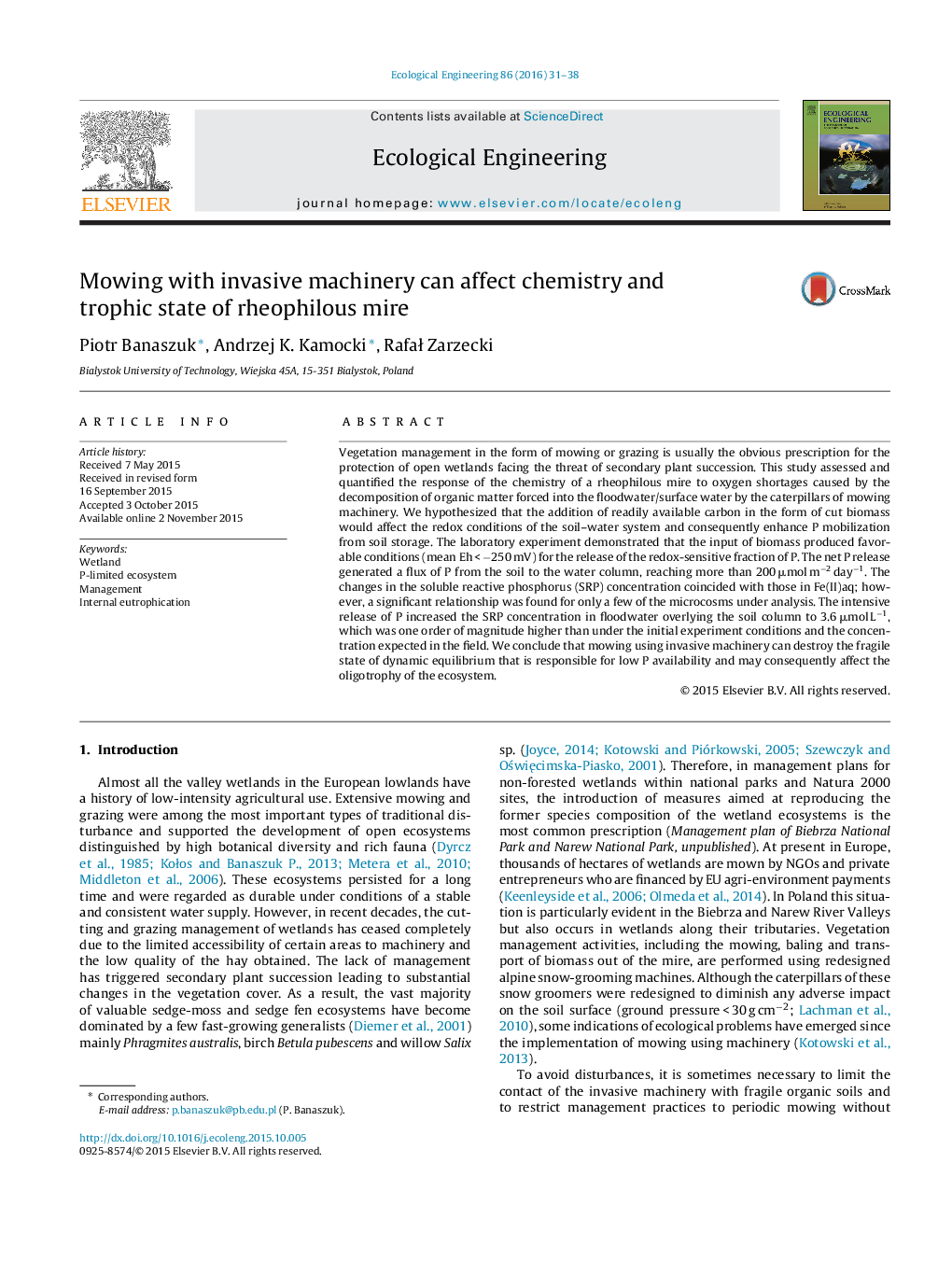| کد مقاله | کد نشریه | سال انتشار | مقاله انگلیسی | نسخه تمام متن |
|---|---|---|---|---|
| 4388911 | 1618013 | 2016 | 8 صفحه PDF | دانلود رایگان |
• Cutting a biomass by use of machinery devastates micro-topography of the peatland by pushing convex sedge tussocks into the peat.
• Decomposition of organic matter forced into the floodwater/surface water can destroy the fragile state of dynamic redox equilibrium that is responsible for low P availability.
• The enhanced P mobilization from soil storage may consequently affect the trophic state and biodiversity of the mire ecosystem.
Vegetation management in the form of mowing or grazing is usually the obvious prescription for the protection of open wetlands facing the threat of secondary plant succession. This study assessed and quantified the response of the chemistry of a rheophilous mire to oxygen shortages caused by the decomposition of organic matter forced into the floodwater/surface water by the caterpillars of mowing machinery. We hypothesized that the addition of readily available carbon in the form of cut biomass would affect the redox conditions of the soil–water system and consequently enhance P mobilization from soil storage. The laboratory experiment demonstrated that the input of biomass produced favorable conditions (mean Eh < −250 mV) for the release of the redox-sensitive fraction of P. The net P release generated a flux of P from the soil to the water column, reaching more than 200 μmol m−2 day−1. The changes in the soluble reactive phosphorus (SRP) concentration coincided with those in Fe(II)aq; however, a significant relationship was found for only a few of the microcosms under analysis. The intensive release of P increased the SRP concentration in floodwater overlying the soil column to 3.6 μmol L−1, which was one order of magnitude higher than under the initial experiment conditions and the concentration expected in the field. We conclude that mowing using invasive machinery can destroy the fragile state of dynamic equilibrium that is responsible for low P availability and may consequently affect the oligotrophy of the ecosystem.
Journal: Ecological Engineering - Volume 86, January 2016, Pages 31–38
